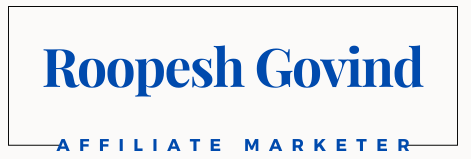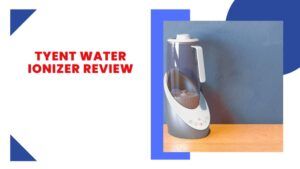Alkaline water ionizers are having a real moment in health circles. Whether you’re scrolling on Instagram or ducking into a wellness expo, there’s a solid chance you’ve stumbled on claims about supercharged hydration, antioxidants in your glass, or water that fights aging.
In the middle of all this hype, Tyent stands out as one of the bigger names. The brand has been selling top-of-the-line water ionizers for years, building a loyal following with some impressively designed machines (and some bold promises on both the health and business fronts).
Many people wonder: Are these Tyent machines worth the price, or is this just another high-pressure sales tactic?
And if you’re thinking like an entrepreneur, the question becomes even juicier: is joining Tyent as a dealer a smart move, or is this the kind of opportunity that leaves you stuck with expensive inventory and vague commissions?
Free Access to the STARTER MEMBERSHIP which includes:
- 8-lesson core niche training
- WA help/community access (2.5 + million members)
- 7 days of coaching/mentoring from me
- And more…

What Is Tyent, and What Do They Sell?
Tyent USA isn’t a new player in the water ionizer world. Since the early 2000s, Tyent has been making and selling alkaline water machines out of New Jersey.
They’ve got a big focus on both health benefits and luxurious, high-tech designs, which show up in wellness clinics, home kitchens, and glossy YouTube reviews. Their products have attracted attention from all sorts of wellness influencers and gadget enthusiasts.
Tyent’s main products are water ionizers, which are basically high-tech filtration machines that use electrolysis to turn tap water into either alkaline or acidic water. You can pick your preference, depending on how you want to use the water.
The thinking is that drinking alkaline water has potential perks for your health, while acidic water is said to work well for cleaning and other uses.
The two biggest models in the Tyent lineup are:
- ACE-13 – Countertop unit with customizable pH levels, touchscreen controls, stainless steel finish, and a slick look that fits in upscale kitchens.
- UCE-11 – Under-counter model with a remote touchscreen that mounts above the sink, hiding all the bulk under your counter for a cleaner appearance.
There’s also a handful of more affordable, compact countertop units (like the MMP-11 and hybrid models), but Tyent’s marketing puts the ACE and UCE models up front as the showpieces.
These machines lean on some headline features:
- Platinum-coated titanium plates: Several plates inside the ionizer boost the ionization process. More plates mean higher power for adjusting water pH and Oxidation Reduction Potential (ORP).
- Strong Negative ORP: This is a big selling point for Tyent fans. A strong negative ORP is said to boost “antioxidant” capacity, though the science here is a little cloudy.
- Dual Ultrafiltration: Tyent units filter water in two stages, supposedly clearing out a long list of contaminants.
- Lifetime Warranty: Nearly all Tyent machines come with a forever warranty for their original owners. That’s pretty handy if you’re worried about an expensive machine breaking down.
Tyent has also branched out into related accessories, like water bottles, hydrogen boosters, and shower filters, but selling those premium-priced water ionizers is still the core of its business.
Company Name: Tyent USA
Website: TyentUSA.com
Price Range: $2,000 – $5,000+ per machine
Product Warranty: Lifetime (original owner)
Types of Ionizers: Countertop & Under-counter, 9–13 plates
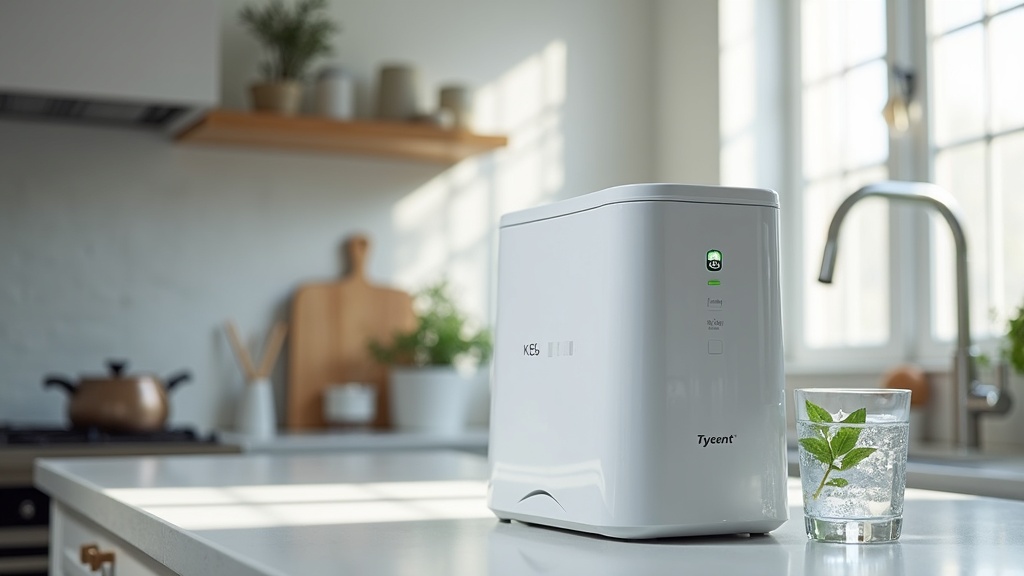
How Does the Tyent Dealer Opportunity Work?
This is where things get interesting for anyone looking to make money. Tyent doesn’t just stick to selling directly to consumers.
They also run a program for people and small businesses who want to become authorized dealers.
Essentially, you can earn commissions for selling Tyent machines or accessories, either online or in person. But is this as straightforward as a typical affiliate program, or is it something more involved? Here’s what I’ve learned about the process:
Dealer vs. Affiliate – What’s the Difference Here?
Tyent’s dealer opportunity is a hybrid between an affiliate system and a more traditional distribution model.
Here’s what you usually see:
- Authorized Dealer: You fill out an application, get accepted, and you’re then allowed to sell Tyent water ionizers. Often, this is as a home business, wellness practitioner, or retailer. In some cases, Tyent gives you special pricing or lets you buy at dealer rates to resell yourself.
- Affiliate Option: You sign up for their affiliate program, get a trackable referral link, and earn commission when someone buys a unit after clicking your link.
Tyent puts heavy attention on the dealer model.
They pitch the idea of building your own business, working for yourself, and making the most of their branding, rather than just passing traffic through your affiliate link like with Amazon associates.
How Do You Become a Dealer?
If you want to join, the steps usually look like this:
- Fill out a dealer application, usually found on Tyent’s website.
- Wait for approval. Tyent reviews your info and may ask about your experience and business plans.
- Pay a startup fee or place a minimum order. You’ll probably have to buy at least one demo machine at a steep discount. Some folks say the minimum buy-in is pretty high ($2,000+), depending on the current promo.
- Complete onboarding. You get sales materials, basic training, brochures, and support from a “dealer manager.”
- Start marketing the machines, either locally or on your website and social channels.
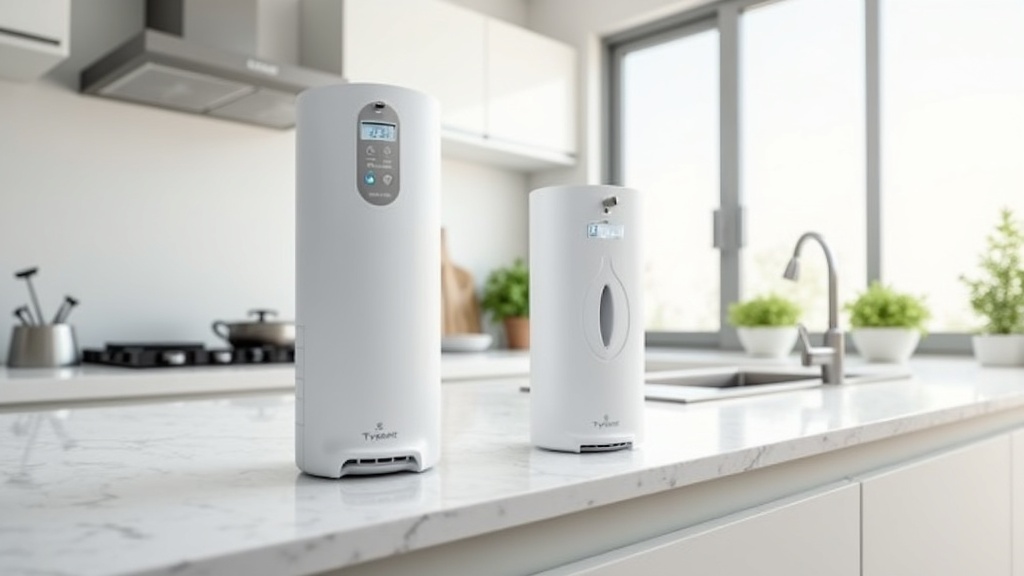
How Do Commissions & Earnings Work?
Tyent advertises high commissions and a simple path to big paydays, with the idea that you’re selling $2,000–$5,000 machines.
The actual breakdown is rarely public (you’ll see general “up to $1,000 per sale!” claims), but based on research and dealer feedback, here’s what you can expect:
- Standard dealer commissions run from $800 to $1,200 per unit sold (sometimes higher if you’re moving a lot of machines).
- Some bonuses or overrides if you build a “team” of sub-dealers under you, but it’s less aggressive than the old-school MLMs.
- Payment is usually made once your customer’s machine ships and the return window closes.
- You’re responsible for your own marketing costs, website, and lead generation.
- Most people are not required to keep a full inventory. Tyent handles fulfillment and transfers for drop-shipped sales. Some dealers stock a demo unit or two.
Depending on how you set up your business, you’re running a local wellness appliance shop or working as a high-ticket affiliate marketer with a strong training and support backbone from Tyent’s side.
Tyent Products – Are They Really Worth It?
This is the most common question I hear, both from folks thinking of buying a machine for home use and from would-be dealers sizing up the market. Tyent’s water machines are seriously expensive—the most advanced models easily cost more than an average fridge or oven.
What’s the Price Range?
Tyent’s price tags run anywhere from about $2,000 up to $4,995+ for their high-end multiplate models. The ACE-13 and UCE-11 (their top sellers) typically list between $3,000 and $5,000. Sometimes you’ll spot a “sale” that brings units under the $3K line, but don’t count on finding a true bargain.
Promises and Health Claims

Tyent, like most water ionizer brands, leans hard into health marketing. You’ll see claims that these machines can:
- Detoxify your body from acidic waste
- Deliver ultra-hydrating, microclustered water
- Increase energy and slow the aging process
- Fight inflammation and improve your immune response
The list goes on, especially once you check out the “alkaline vs. acidic” water blog content and dealer training videos.
Clinical Evidence & The Science
This is where things get a bit complicated.
There’s no question that Tyent machines do filter and ionize water, and yes, the water that comes out has a different pH and lower ORP than what went in. But when it comes to all the big claims (like curing disease, deep body detox, or reversing aging), the science just isn’t solid.
Here’s what’s known:
- Lots of studies agree that clean, filtered water is important for health.
- Some evidence exists that super high pH or very negative ORP water might act as a mild antioxidant in lab settings, but connecting this to real health benefits in humans is shaky.
- The “microclustering” thing is mostly a myth; mainstream science doesn’t back this claim.
- The FDA and most medical groups don’t officially support alkaline water for treating health problems.
If you’re buying (or selling) a Tyent ionizer, you’re mostly buying into a lifestyle, a fancy kitchen upgrade, and a particular kind of hydration experience. The machine itself is well built, but you may want to stay realistic about the bigger health claims for both your use and if you plan on promoting these to others.

Is Tyent an MLM in Disguise?
The moment you see big commissions, required buy-ins, and dealer “teams,” it’s natural to ask if you’re looking at a multi-level marketing (MLM) setup. Tyent is sometimes compared to Kangen (by Enagic), probably the most famous water MLM out there, but there are some key differences, along with a few familiar feelings.
How Does Tyent Compare to Classic MLMs?
Tyent says it isn’t an MLM, and officially, they’re correct. There’s no set requirement to recruit under you, and most dealers only make money when they sell physical machines.
However, the business model borrows several elements from MLMs, including:
- Large upfront cost just to get started (demo machine buy-in, dealer application fee, etc.)
- Special training, scripts, and online “dealership” resources aimed at getting you to hard-sell friends, family, and local connections.
- Encouragement to build a team under you (sub-dealer or “referral” structure) with small overrides.
- Promised lifestyle income from a few “sales a week.”
You won’t see complicated levels or forced monthly auto-ship like classic MLMs, but there’s a strong marketing buzz that feels almost MLM-adjacent, with plenty of videos and Facebook groups hyping huge success stories.
Are There Any Red Flags or High-Pressure Tactics?
- High-intensity sales webinars or Facebook parties filled with emotional stories and aggressive commission hype.
- Pressure to buy inventory (even just the one demo unit) before you’ve made a sale.
- Marketing that’s heavy on unproven health claims, which sometimes brush up against what’s allowed by the FTC.
- Dealer support forums where skepticism or hard questions might be deleted or ignored.
So while Tyent is technically a dealer-based direct sales program (not a full-blown MLM), there are enough pyramidal vibes to give cautious buyers pause, especially if you’re sensitive to high-pressure or hype driven business opportunities.
Recommended Reading: The Truth About Starting An Online Business: What You Need To Know
Pros and Cons of Joining Tyent as a Dealer
Weighing the good and bad is super important before taking on any side hustle or “business opportunity.” Tyent isn’t a fit for everyone, so let’s break it down clearly.
Pros
- They sell a real, physical product that people use; this isn’t digital vaporware.
- The Tyent brand is well known, and lots of buyers are looking for reputable, high-end options.
- Warranty is pretty hard to beat and is a big selling point if you want buyers to trust you with a multi-thousand-dollar appliance.
- If you have an audience (wellness coaching, holistic health, influencer), commissions can be hefty.
- Flexible setup with no mandatory monthly minimums after launch for most dealer levels.
Cons
- The upfront cost can be a huge barrier—demo units usually cost over $2,000 before your first sale.
- Health claims around alkaline water are mostly hype—so don’t promise miracles to prospective customers.
- You’re in a tough niche: not everyone believes in ionized water, and there’s stiff competition from Kangen, cheaper brands, and everyday water filters.
- Feels a bit like an MLM, relying on “success stories” and dealer team hype.
- If you lack a solid network or strong digital marketing know-how, getting sales might be tough.
- Some customers report frustrating buyback or warranty service if you’re not the original owner.
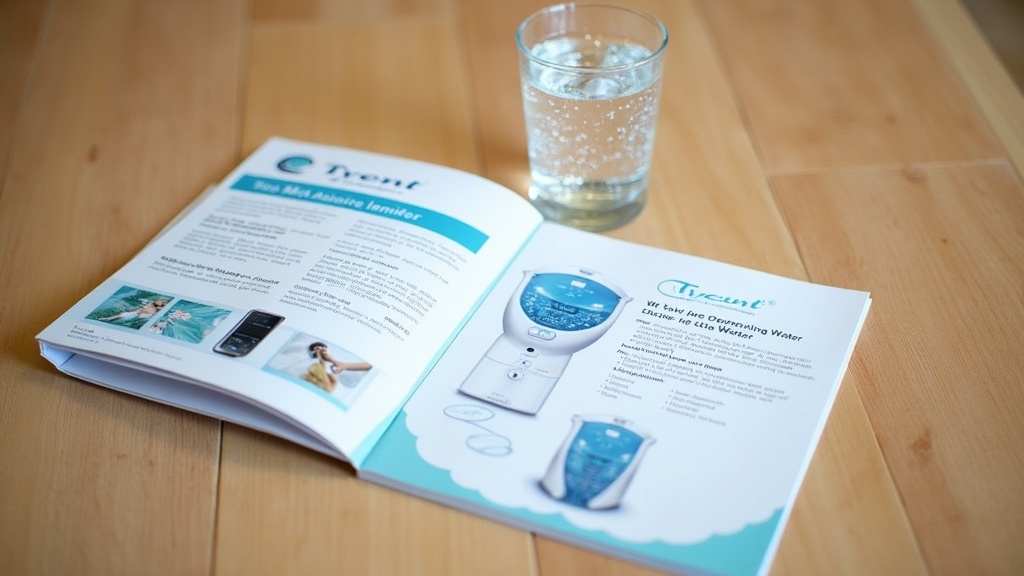
Who Is Tyent Best For?
Tyent (and its dealer program) works best for people who genuinely believe in the value of alkaline water, have some wellness experience, or already maintain an audience that’s open to high-end health gadgets.
Some good fits are:
- Nutritionists, naturopaths, wellness coaches, or spa owners looking for a premium add-on product.
- Social media creators with communities into biohacking, anti-aging, or healthy living.
- People who love the science (or at least the story) behind alkaline and hydrogen enriched water and are happy to promote it passionately.
- Those with some business savvy, confident with high ticket sales, and objection handling.
This is not a side hustle for casual, beginner online entrepreneurs seeking fast results with minimal risk. The niche takes a lot of preparation, confidence in explaining the product (and its limits), and ideally a built-in audience or network.
My Final Verdict – Should You Join Tyent?
There’s no debate: Tyent makes quality machines, and for the right customer, having filtered, ionized tap water is a real treat. If you’re personally sold on the benefits, buying for yourself is a nice kitchen upgrade. Just don’t expect it to “fix” all your health problems.
On the dealer opportunity side, I see both benefits and good reasons to tread carefully. You really can earn big commissions if you’re already plugged into a market wanting luxury wellness appliances, like gyms, spas, or health coaching businesses. But for most people starting from scratch, this is a high-risk, long-haul gig. You have to invest a decent amount upfront, build trust with skeptical customers, and steer clear of making medical claims that could cause trouble.
If you don’t already have a wellness-focused business or digital marketing chops, it’s going to be a slog to get those $4,000 sales rolling in. Plus, there’s always that faint MLM air, which can make it tough to build genuine trust.
Free Access to the STARTER MEMBERSHIP which includes:
- 8-lesson core niche training
- WA help/community access (2.5 + million members)
- 7 days of coaching/mentoring from me
- And more…

My #1 Alternative: Traditional Affiliate Marketing
Instead of putting thousands down to stock water ionizers, consider affiliate marketing for physical or digital products you actually like—no inventory, no risky buy-ins, and commissions that add up over time.
Programs like Wealthy Affiliate and Invincible Marketer teach you to make money online promoting things you can personally stand behind, usually with zero upfront cost.
A Better Way to Build Your Online Income (No Selling Water Machines!)
When I first started hunting for online side hustles, I also got drawn in by promises of huge commissions from high-ticket products like supplements and gadgets.
After a few missteps (and a couple of “why did I pay $2,000 for this?” moments), I realized real, steady online income is about providing value—sharing honest opinions, recommending tools I use myself, and growing a site or audience that I’m truly proud of.
Affiliate marketing was the game-changer for me.
I could promote products from Amazon, software tools, or health gadgets—without stacking up inventory in my garage or giving friends the hard pitch. After a couple of months of learning, the first commissions started rolling in. Now, I work from anywhere, choosing what products I recommend and focusing on earning through helping, not hype.
If you want to get started, my top pick is Wealthy Affiliate. They offer free training, websites, and the support you need to make it online—no buy-ins, no pushy sales, and no need to convince your neighbors to try expensive kitchen gadgets. You can read my detailed review here.
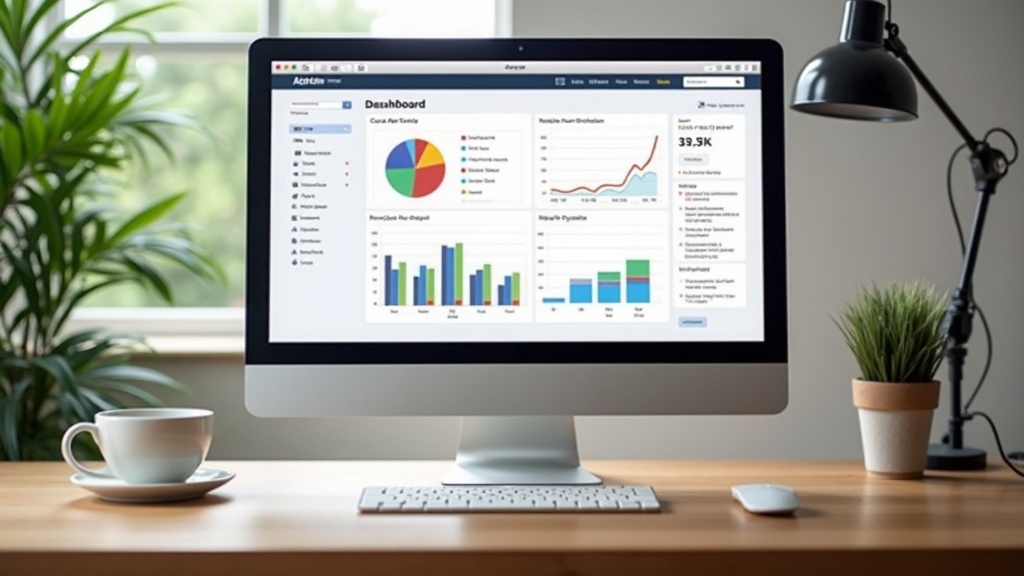
FAQ – Tyent Dealer & Water Ionizer Questions
Is Tyent a scam or a legit business?
Tyent is a legit company making real water ionizers in the US, with a rock solid warranty and real customer support. The business opportunity itself isn’t a scam, but the marketing can feel a bit hyped up.
How much do Tyent dealers earn?
Dealer commissions can be good—$800 to $1,200 per machine sold—but only if you make sales. Most dealers who succeed already have an audience or own a health-focused business. It’s not guaranteed income, and most folks make just occasional sales.
Is alkaline water really good for you?
Clean, filtered water is always a positive move. There’s weak evidence alkaline water offers major extra health benefits over regular filtered water, so approach dramatic claims with skepticism. As a daily beverage, it’s safe for most people, but don’t expect magic.
Can I resell Tyent machines online?
You can if you’re an authorized dealer, or if you list your own used unit on eBay or Facebook Marketplace. Keep in mind, resale value drops pretty quickly. Dealers must stick to Tyent’s marketing guidelines and minimum pricing rules when selling new machines.
Still got questions or want to chat about side hustles that don’t ask you to stock your garage with high end water gadgets? Drop a comment below.
I always reply!
